Sports desk39 minutes ago
- Copy link
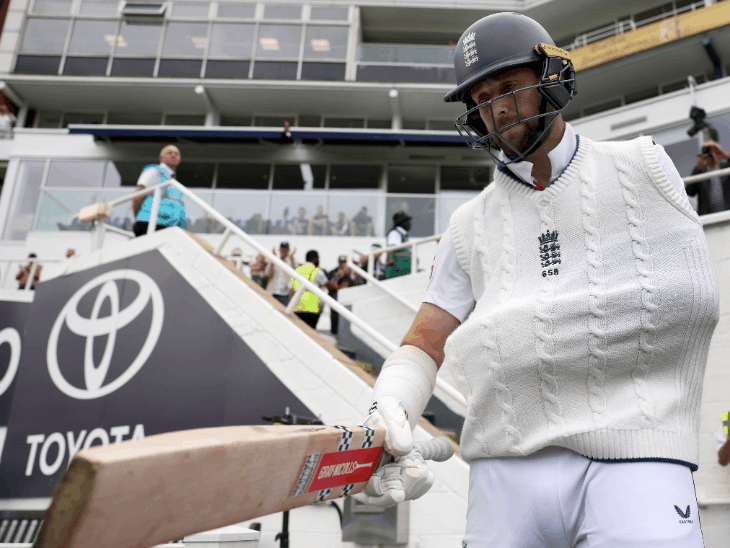
Indian fast bowler Mohammad Siraj was the first ball of the 295th over of the match on which Gas Atkinson bowled Gas Atkinson and won India in the Oval Test. This match became so exciting and always memorable because in the 294 -over game before this ball it was not being decided who would be in favor of the match.
India could win the match and England too. It was also possible that this Test will match the third tie in history. So far only two tests have been tied. If England were all out for 373 runs, this would have been the third tie.
In the match, there were 12 moments from which the match of the match was sometimes bowed in India’s favor, sometimes in the favor of England. All these 12 are passed through dramatic incidents one by one.
12 turning points of The Oval Test …
1. To get all out cheaply after losing the toss of India; Karun Nair’s Fighting Half Century On Thursday, India started with poor luck at The Oval, London. The team lost the fifth consecutive toss in the series. India had to go down to bat on the swinging pitch of Oval, the team lost 5 wickets for 123 runs.
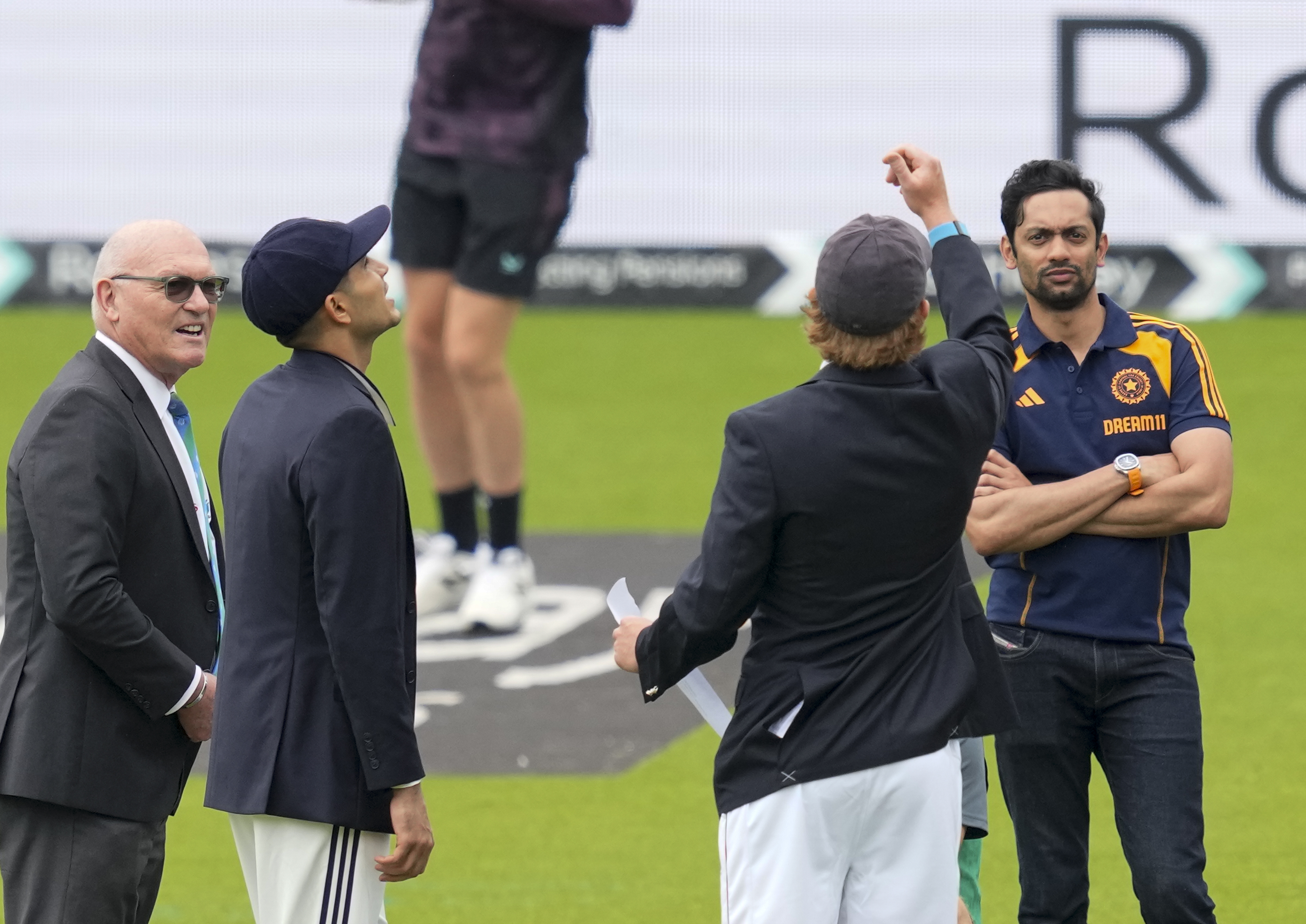
Team India could not win a single toss in the series. England won the toss even in the fifth match, due to which India had to go to batting first on the help of bowlers.
Karun Nair, who came down to batting at number-5, again took the innings and took the team beyond 200 runs. However, as soon as he was out, the team was all out for 224 runs. This was the shortest score of a team in the first innings in the entire Anderson-Tendulkar Trophy. Earlier, 358 runs were the shortest score.
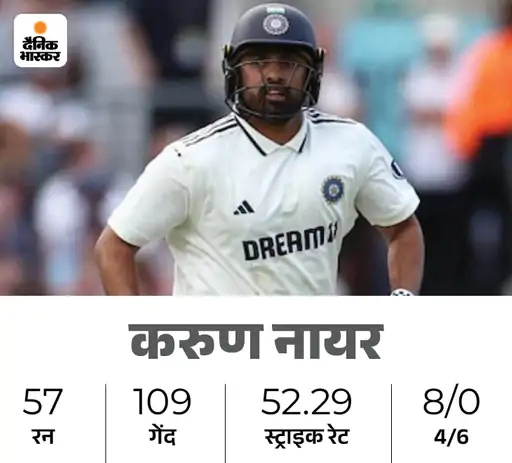
2. Dacch-Crely’s fast partnership, India will be far behind in the match England started fast after covering India on a low score in the first innings. Ben Docket and Jack Crolya brought the team’s score to 90 in the 13th over itself. Even after Docket’s wicket, Crolya batting fast and put a fifty. England had lost only 1 wicket by 128 runs, it seemed that England would dominate the match completely.
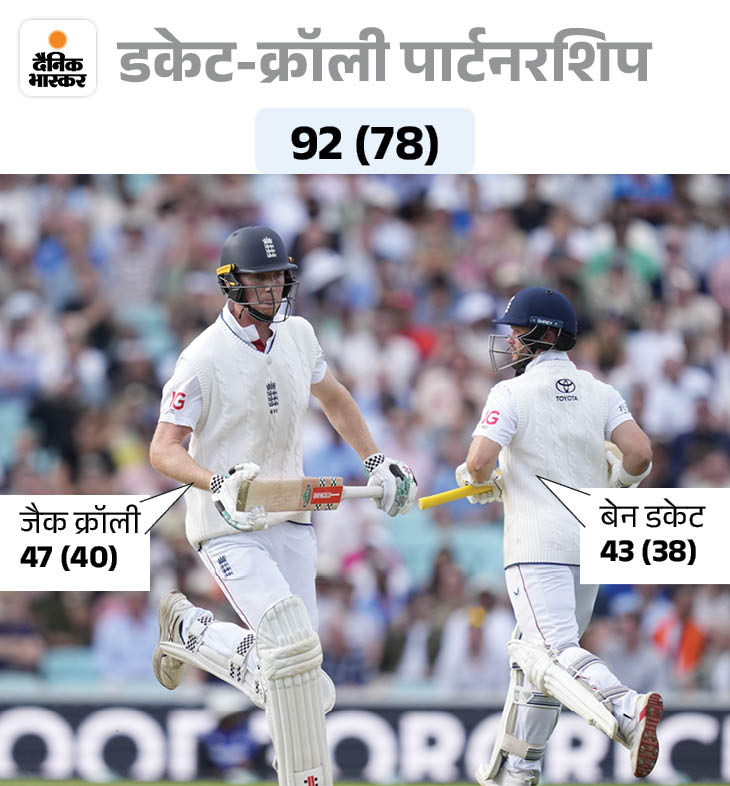
3. Pesters prevented England from taking a big lead The famous Krishna caught Crowley in the first innings and gave India a breakthrough. England’s 5 wickets had fallen by 215 runs. Harry Brook was batting fast from an end. Here Mohammad Siraj and the famous made the team a comeback. Together, the two took 5 wickets within the next 33 runs and bowled England for 247 runs. England could take a lead of just 23 runs with the best bowling of Siraj-famous.
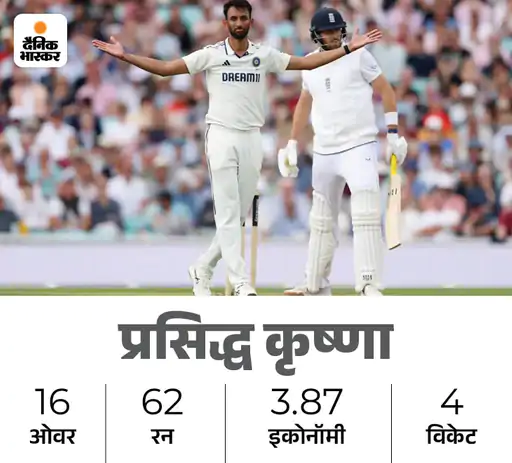
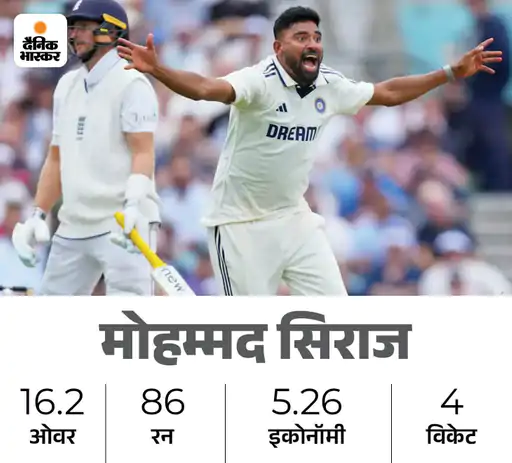
4. Jaiswal’s century and night watchman Akashdeep’s fifty India started in the second innings, but KL Rahul and Sai Sudarshan were dismissed on the second day of the match. The team lost 2 wickets for 70 runs, here bowler Akashdeep Nighting Night Watchman and went to batting. On the third day of the match, the pitch became helpful for batting.
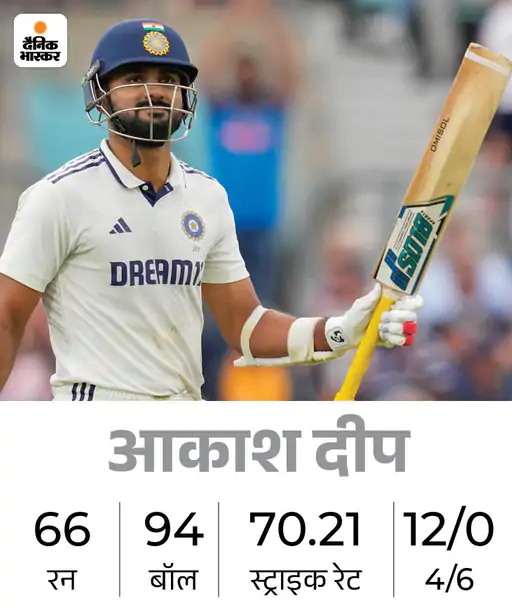
On the third day, Yashaswi batting carefully, Akashdeep also stayed. He openly played shots and scored the first half century of his career. Yashasvi also put a fifty in front of him. Both took the team beyond 150 and made a century partnership.
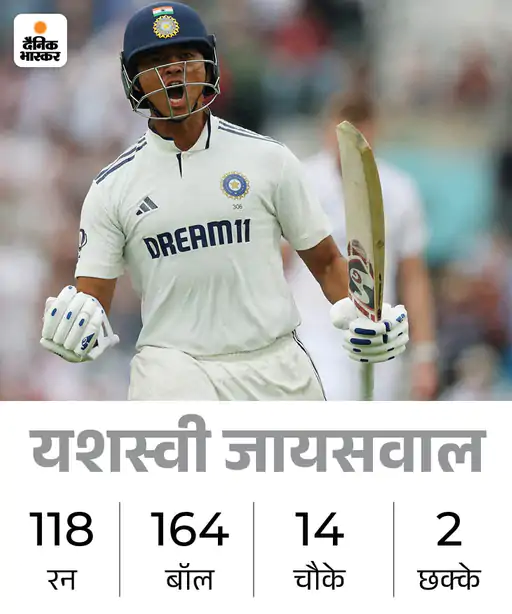
5. India’s mini colps in second innings After stopping England by a big lead in the first innings, India scored 177 runs for two wickets in their second innings. Nightwatchman Akashdeep made a half -century and opener Yashasvi Jaiswal was moving towards century.
Here Akashdeep gave the wicket to Jami overton on a score of 66 runs. In the next 12 overs, India lost three wickets and the score was five wickets for 229 runs. India’s lead then was just 206 runs. This mini colps of Team India returned to England’s match.
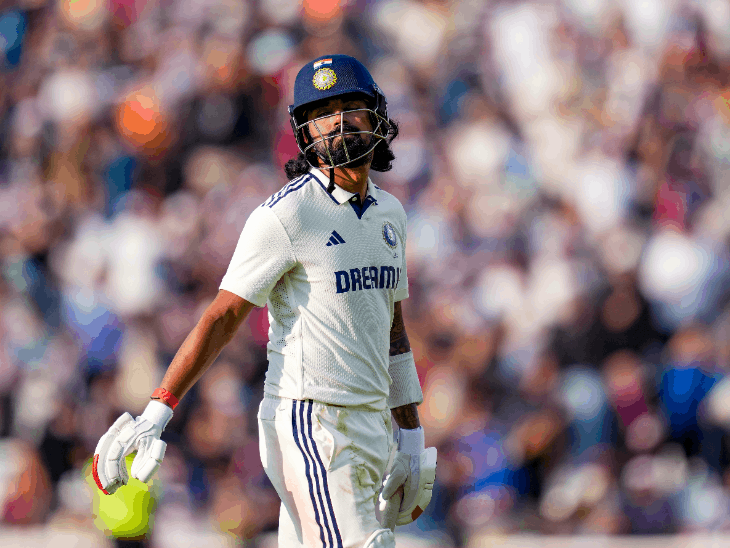
India lost 3 important wickets within 53 runs. The pressure on India increased due to the dismissal of Akashdeep, Shubman Gill and Karun Nair.
6. Jadeja-Sunder extends India’s lead Yashasvi Jaiswal definitely scored a century, but even when he was dismissed by 118 runs, India’s lead was only 250 runs. The pitch was getting good for batting and around 300 targets would have been very easy for the English team. Dhruv Jurael was playing well, but he was also dismissed by 34 runs.
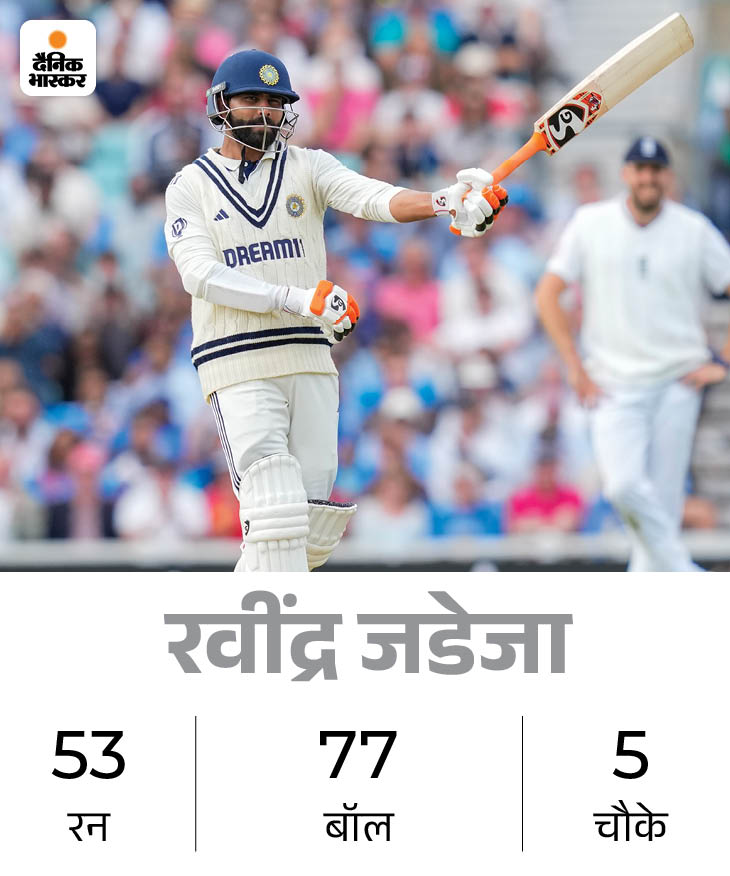
After 6 wickets, Ravindra Jadeja and then Washington Sundar made India’s lead to compete by making half -century. Jadeja scored 53 runs off 77 balls with the help of 5 fours. At the same time, Sundar scored 53 runs off 46 balls and 53 runs on the same sixes. Sundar finally added 39 runs for the wicket with the famous Krishna. The same run finally proved to be decisive for India.
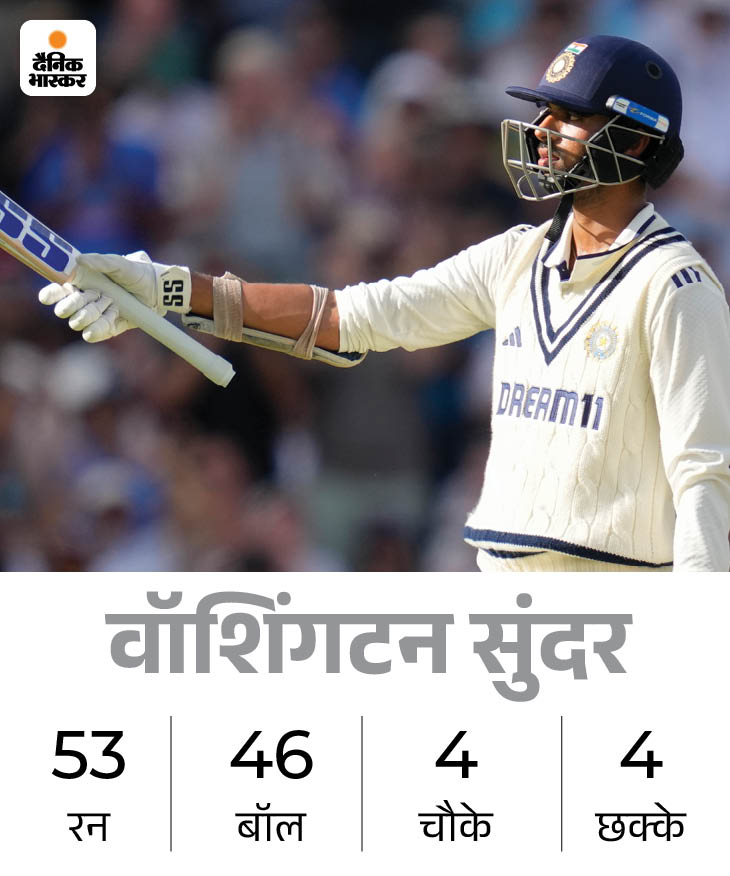
7. Siraj left a catch, Brook almost dropped India England started their second innings on the third day. The team also scored 50 runs fast, but Jack Clost was out in the last over of the day. On the fourth day, 3 wickets for 106 runs. Here Joe Root and Harry Brook took the innings. Here when Brook was batting at the score of 19 runs, he missed his catch at the fine leg position from Mohammad Siraj.
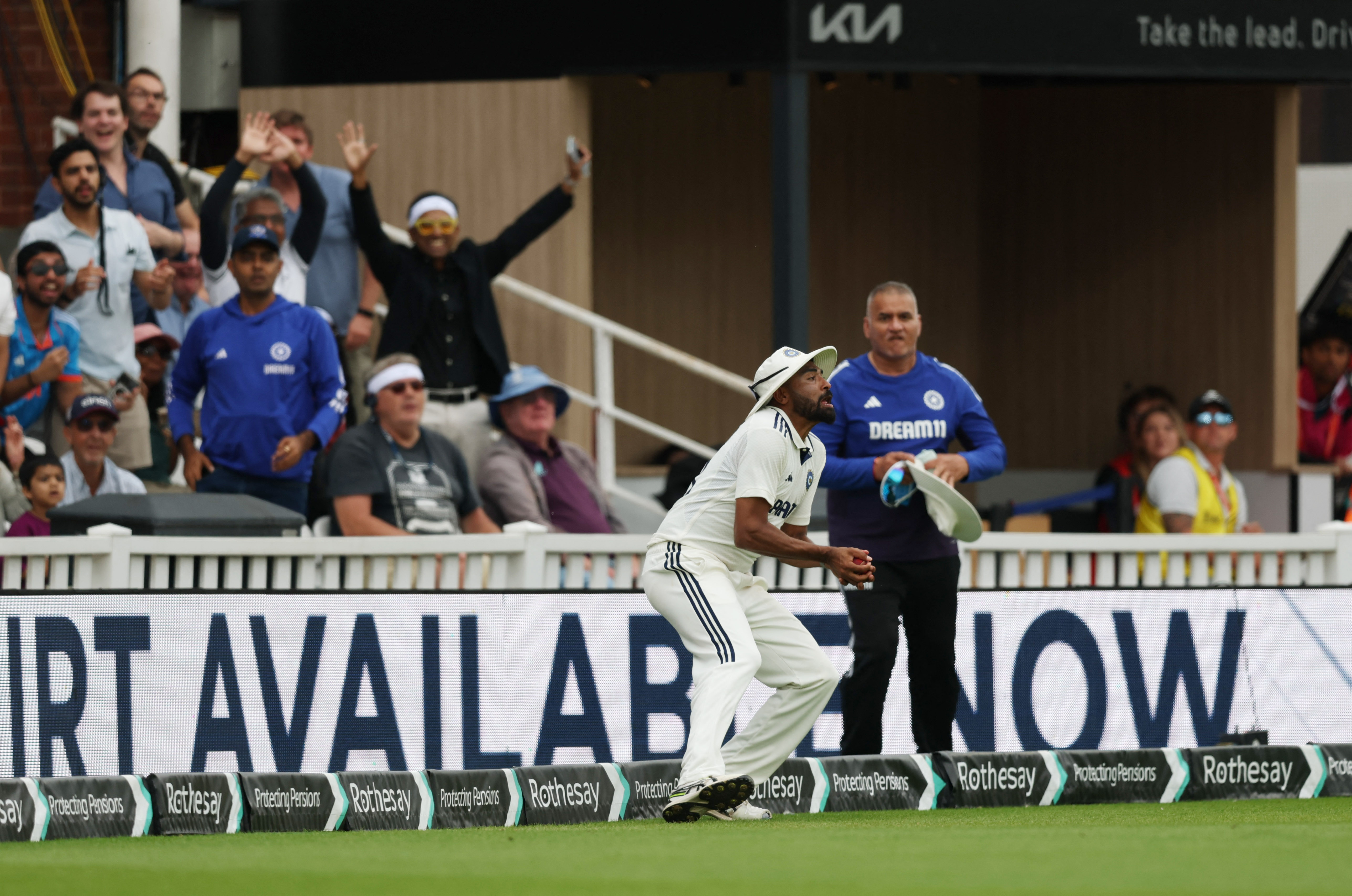
Siraj caught a catch on the boundary, but his leg collided with the boundary. This gave Brook life.
Brook took advantage of this life and along with the route brought the team beyond 300. At one time, England had scored 301 runs for 3 wickets. Then he needed only 73 runs to win and 7 wickets left.
When both were batting, it seemed that England would win within 1 hour and India would face 1-3 defeat. Even the bowlers were encouraged and they were seen bowling very disappointed.
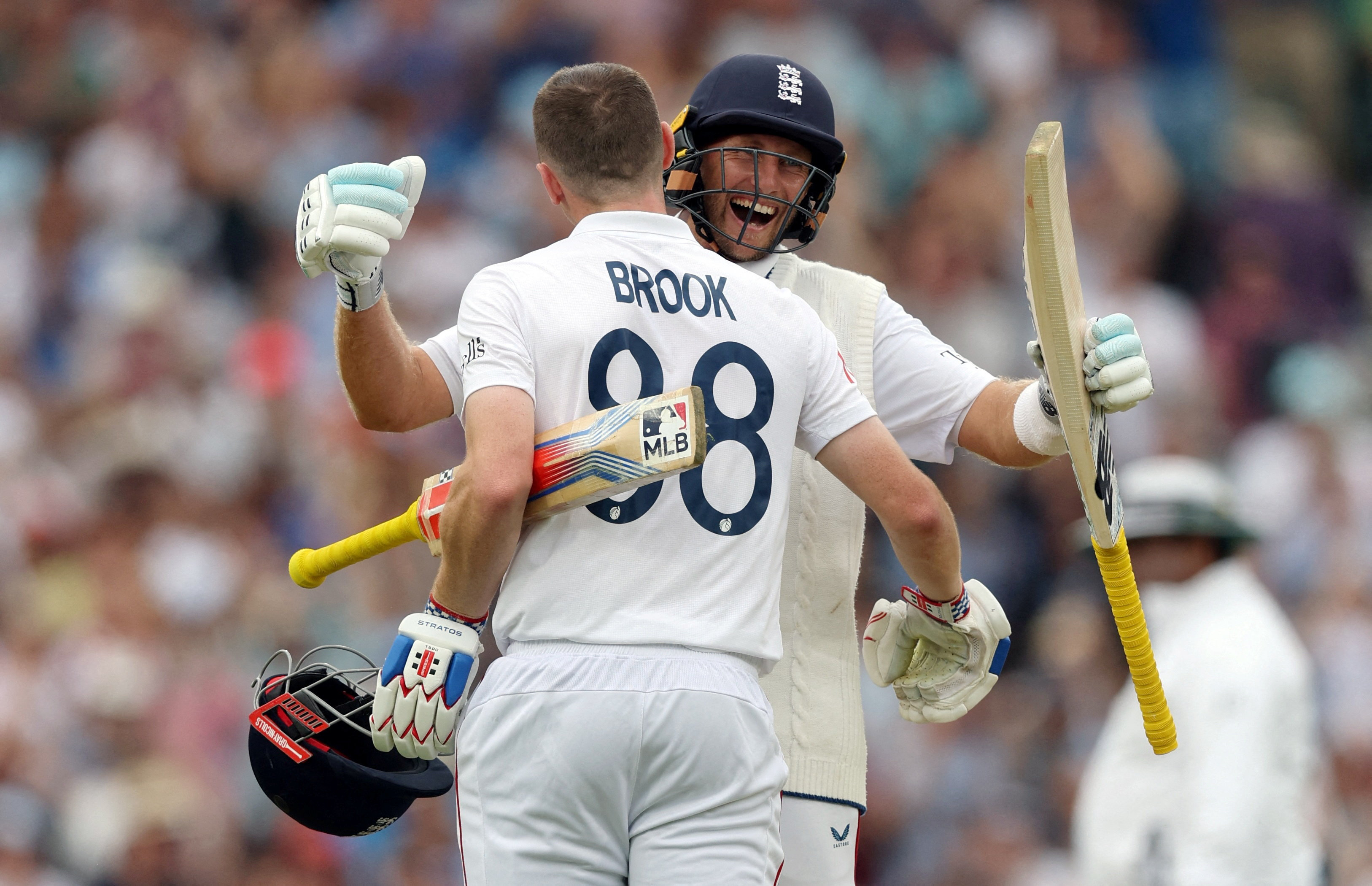
Harry Brook and Joe Root partnered 195 runs. This partnership brought the home team very close to victory.
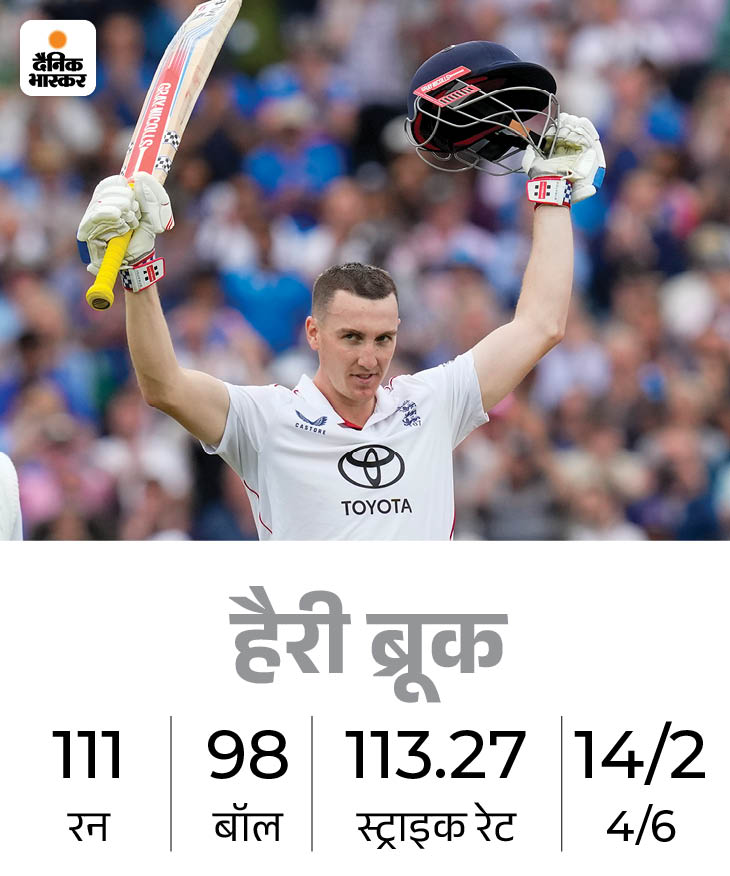
8. Brook’s poor shot and Momentum reached India England had only 3 wickets by 301 runs. Brook had set up 2 boundaries in one over of Akashdeep here, despite the big shots went to play and were caught out. With this wicket, India tried to return to the match. However, Root and Jacob Bethel did not let the team fall for the next 7 overs and the team remained in the match.
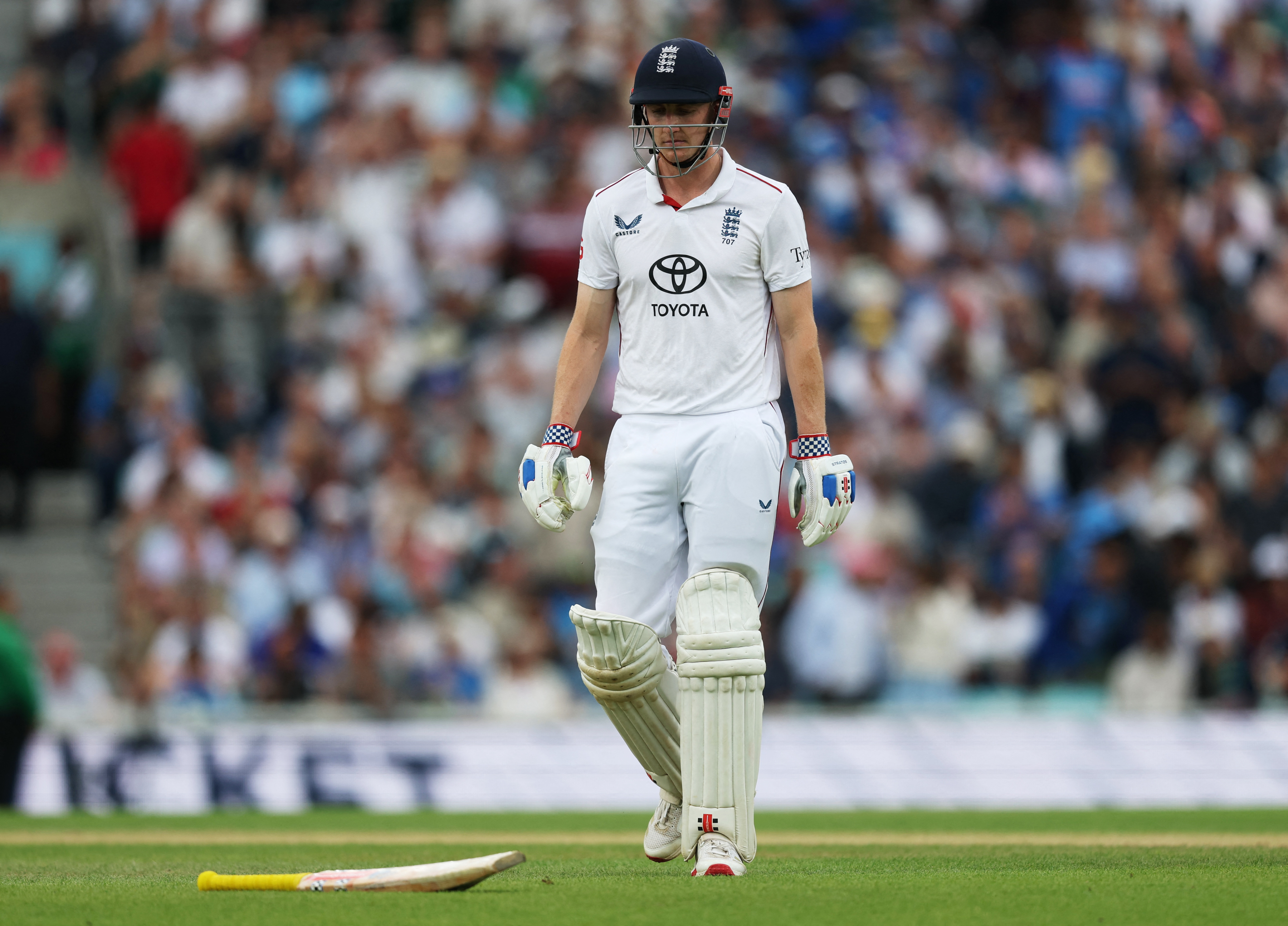
Harry Brook was dismissed before the team won. After his wicket fell, India started holding the match.
In the 71st over, Jacob Bethel went ahead and went to play big shots and became bold. It is from here that Momentum came in favor of India. After 2 overs, the root, which has scored a century, also became cottage. The team’s 6 wickets fell for 337 runs and Momentum was completely in favor of India. For the first time here it felt that Team India could win this match.
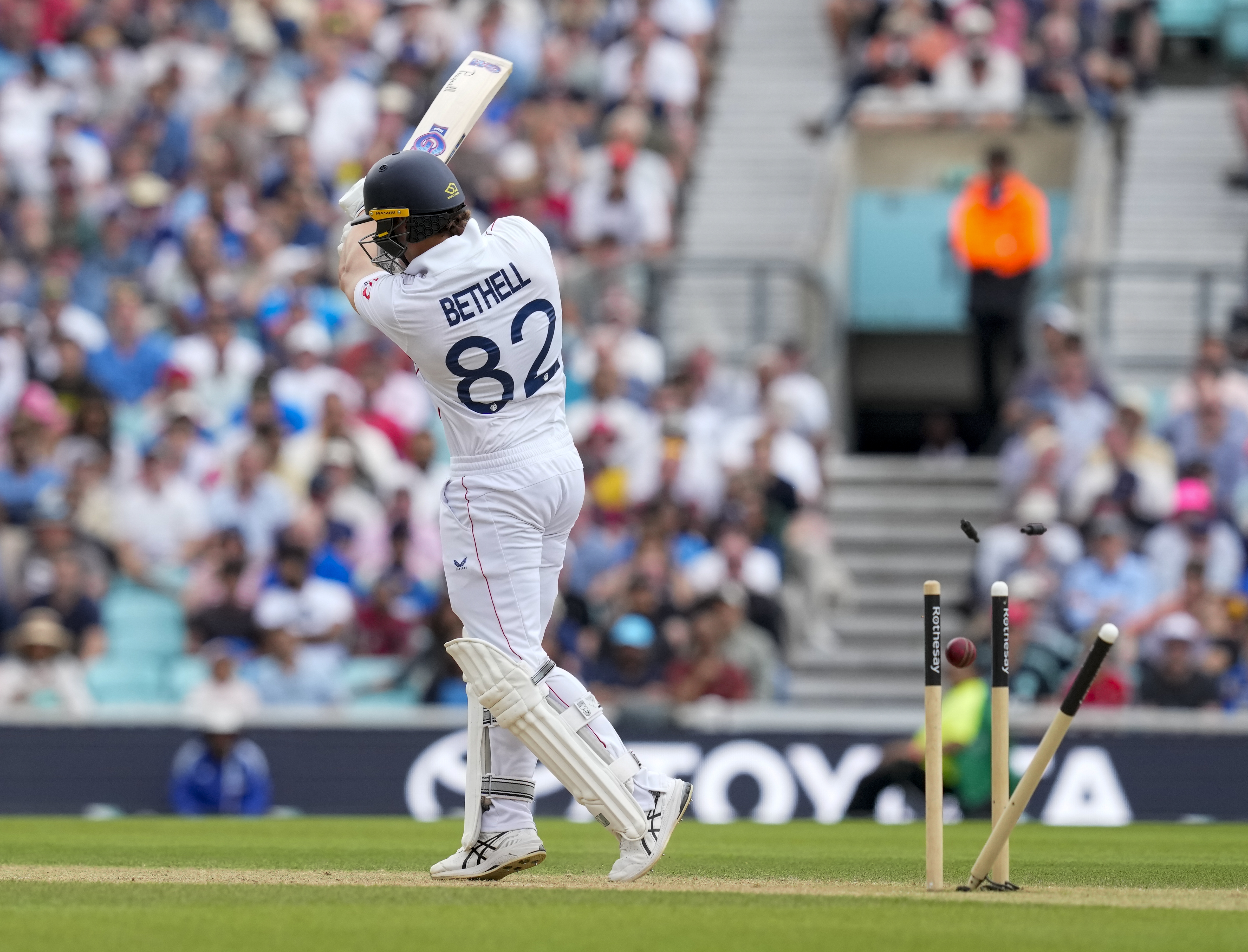
Jacob Bethel was bowled after scoring 5 runs. He was sent to the pavilion by the famous Krishna. With this wicket, Momentum went in favor of India.
9. The end of the match in four days rejected the rain The first four matches of this series lasted for five-five days. The match was about to end in four days. There are 90 overs in a day, but in the fourth day game, only 62.3 overs could be played and this test also went in the fifth day. Due to rain and poor light, the game had to be stopped one hour before the scheduled time on the fourth day.
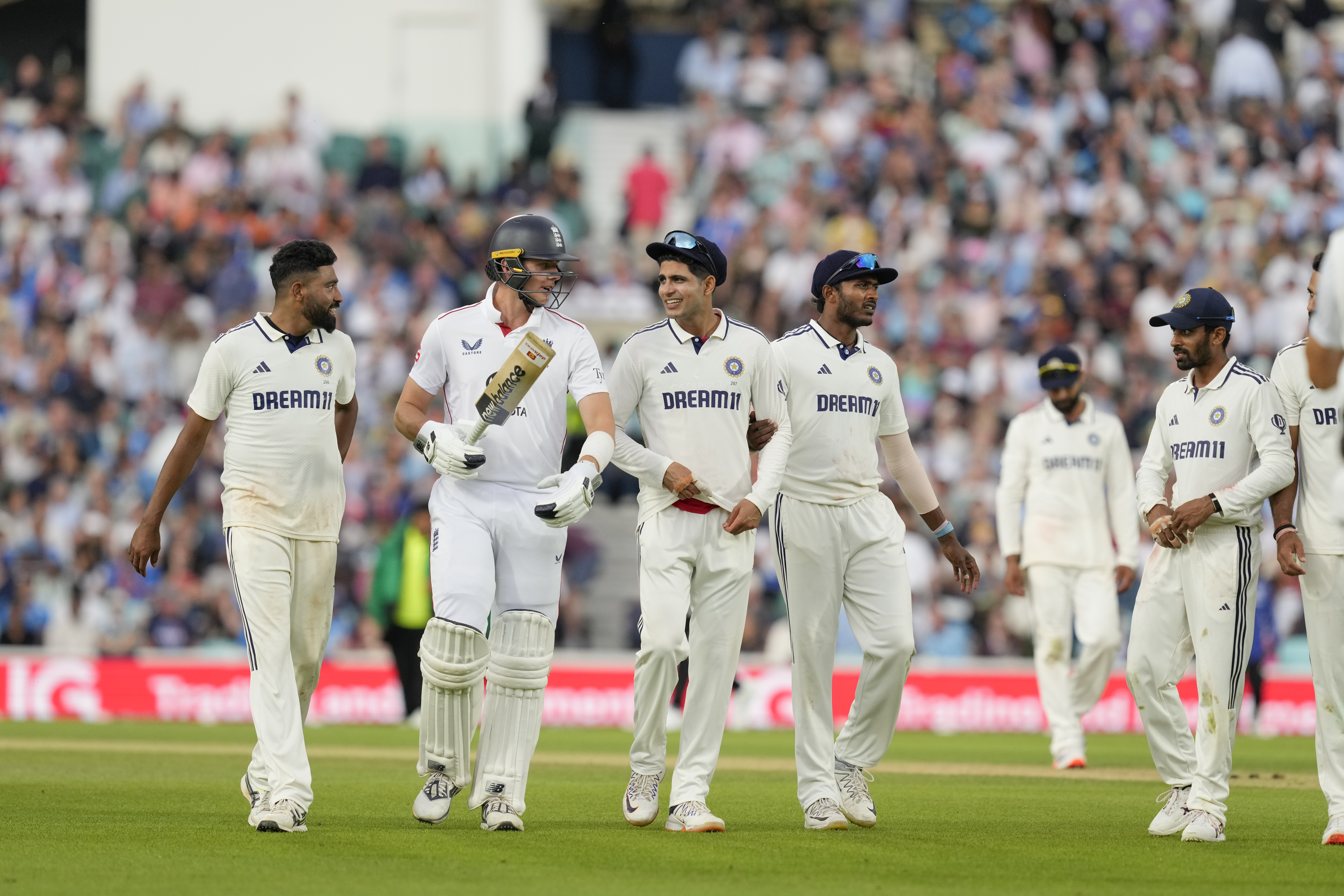
Players of both teams returning to the pavilion after the fourth day’s play was over. England lost 6 wickets on the fourth day.
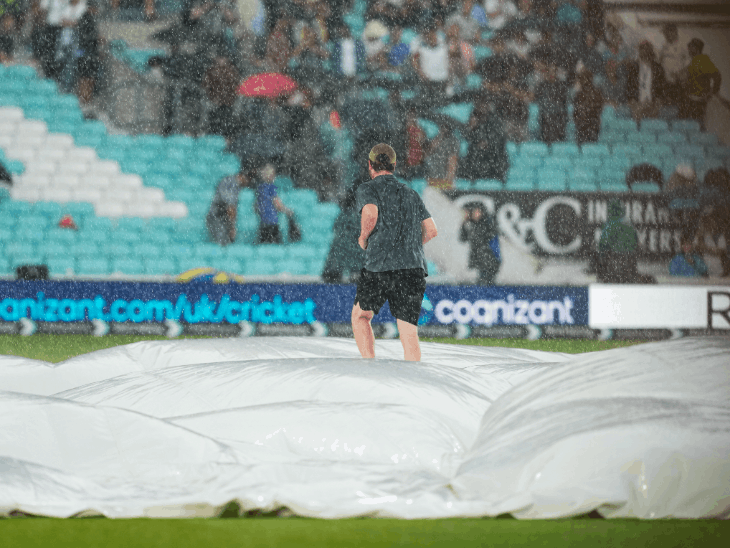
The last 90 -minute play could not be held on the fourth day.
10. England needed 35 runs and two fours on the first two balls At the beginning of the fifth day, England needed 35 runs to win and India needed 4 wickets. The first over of the day came to throw the famous Krishna and overton hit two fours off Krishna’s first two balls. Now England had only needed only 27 runs.
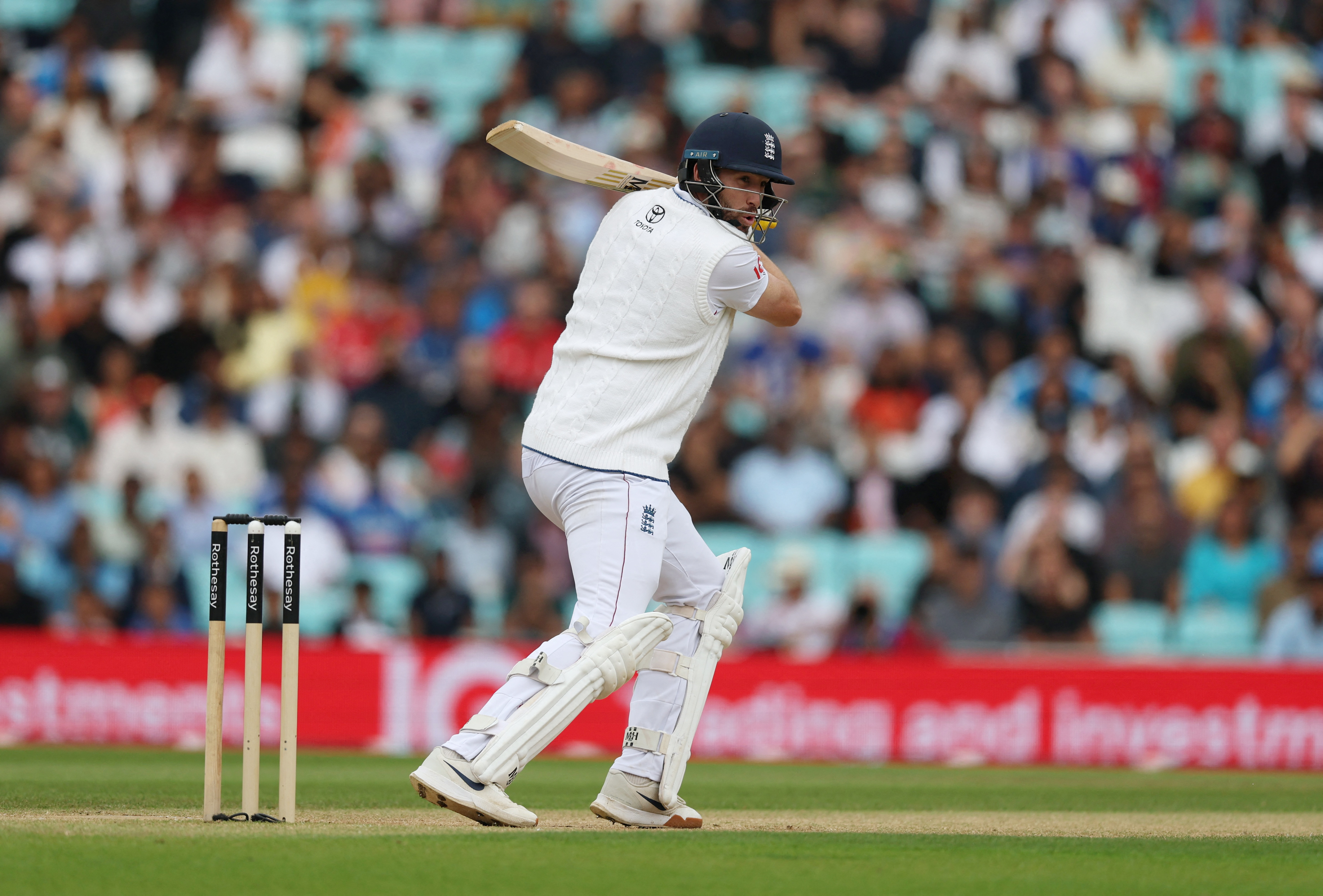
Jamie Overton hit 2 fours off the first 2 balls of the fifth day. After these boundaries, England needed only 27 runs.
11. Then Mian Magic and India came close to victory Mohammad Siraj was repaid by Krishna’s balls in the next over. He caught England’s last specialist batsman Jamie Smith on the third ball of his first over of the day by Dhruv Jurlel. Siraj dismissed overton in his next over before England could recover from this shock.
Openton took DRS after the umpire Dharmasena dismissed, but the review did not work and they were dismissed on the umpires call. After some time, the famous Krishna dismissed Josh Tong (0) and brought India to the threshold of victory.
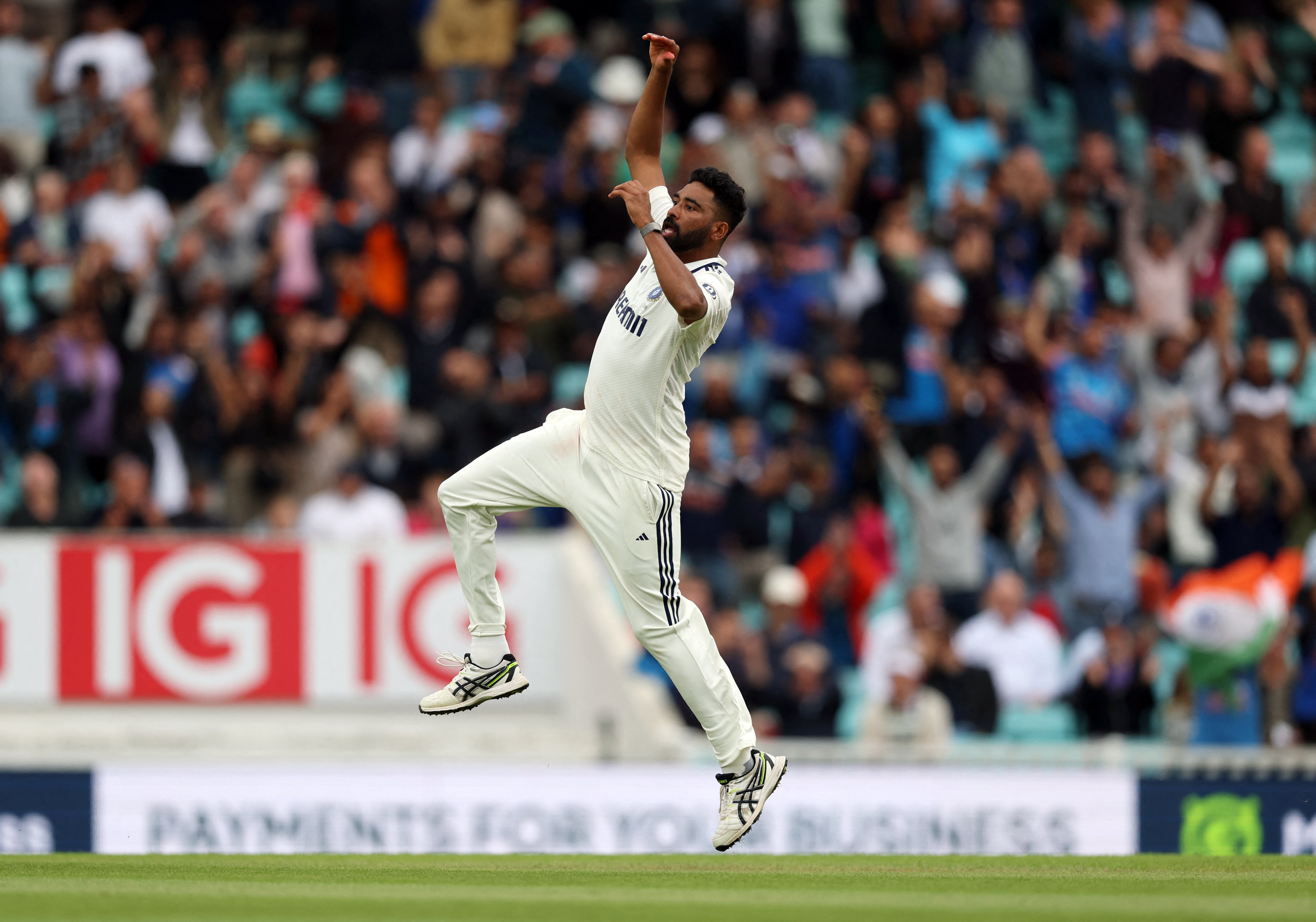
Mohammad Siraj dominated India with 2 wickets in 2 overs. He sent Jamie Overton and Jamie Smith to the pavilion.
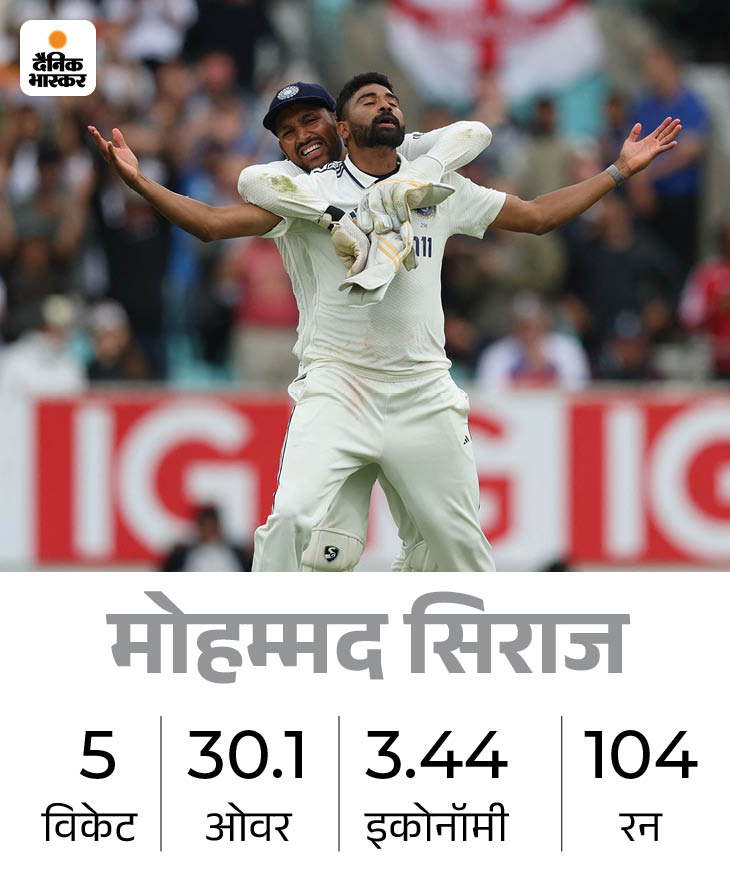
12. Chris Woakes descended to bat with one hand England fast bowler Chris Woakes was sitting in India’s first innings during fielding and disliked his shoulder. The England Cricket Board had also announced that Vox would not participate in the match, but when England’s ninth wicket fell, the team was just 17 runs away from the win, Vox put the broken hand inside the sweater and reached to bat with one hand.
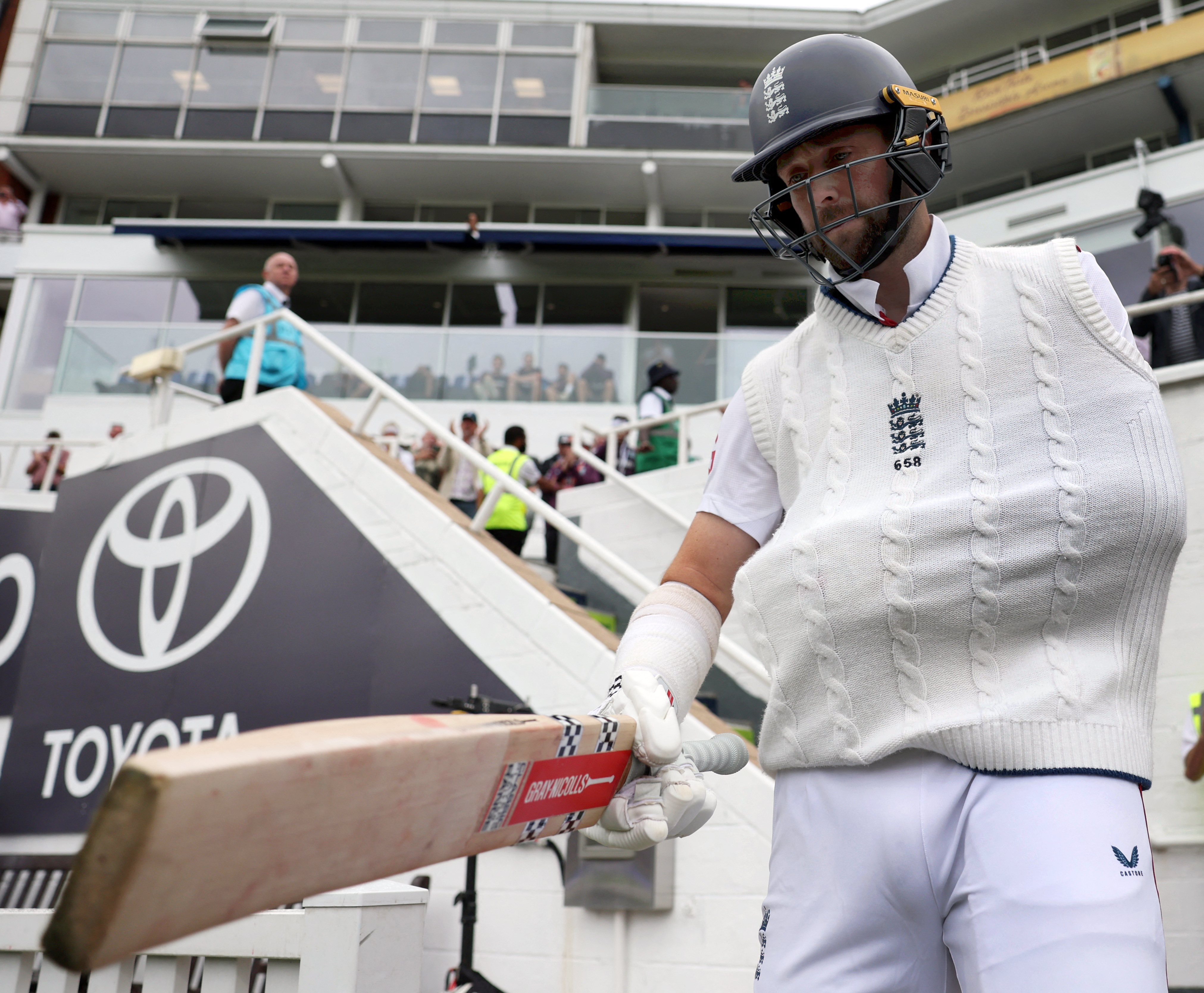
Chris Woakes tied a strap on one hand and took a bat in the other hand to bat. He did not come to bat in the first innings.
Vox stayed at the crease for the next 13 balls. Atkinson was saving him from the strike and started trying to make a big hit by playing all the balls himself. He also hit a six off Siraj’s ball and kept Vox away from the strike by taking a run off the last ball in two consecutive overs.
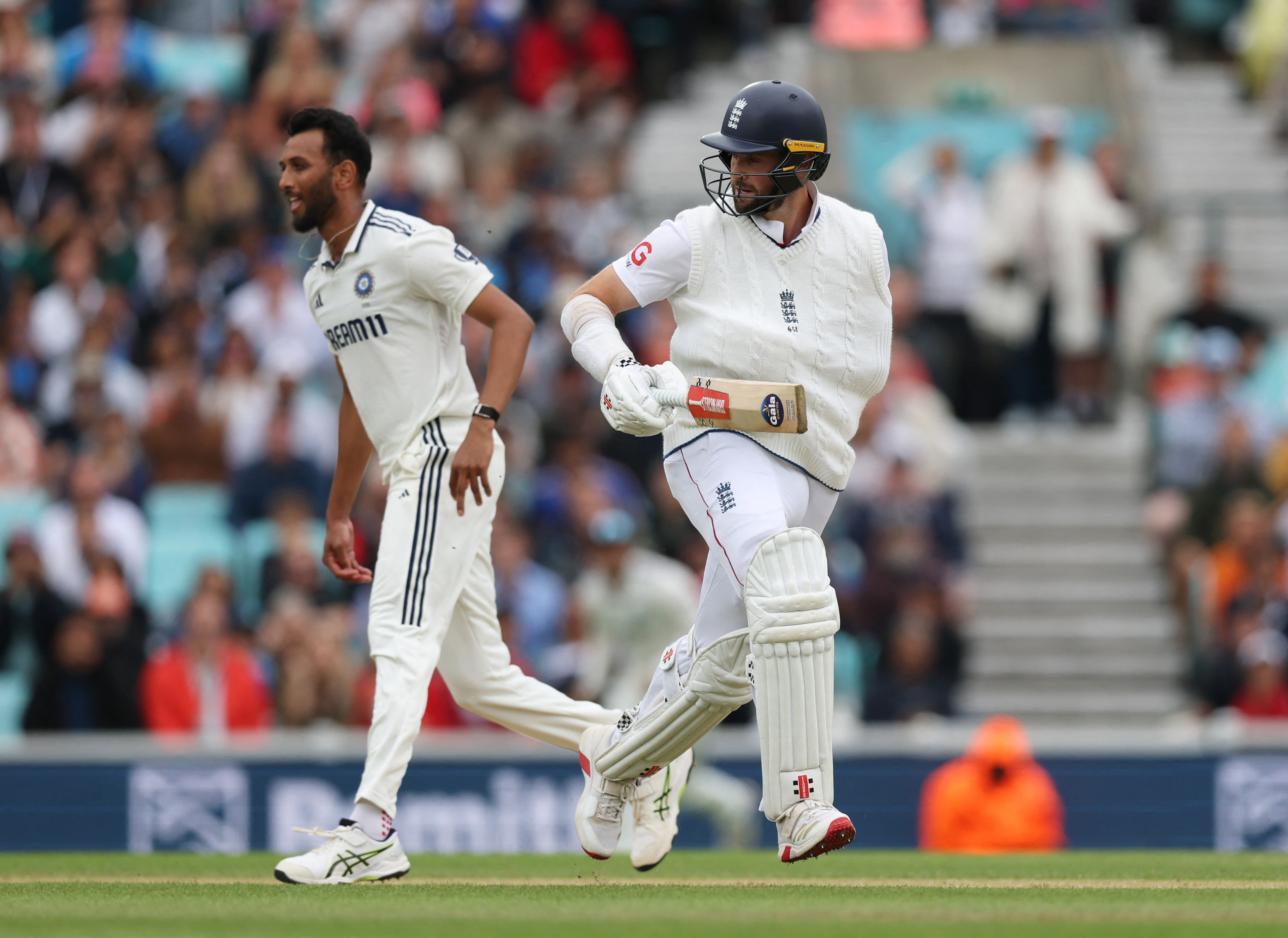
Chris Woakes running runs with Inzard hand. He stood at non -striker end for 13 balls.
Now England needed only 7 runs to win. Then Mohammad Siraj came again to throw the overall 295th over of the entire Test match and the 86th over of the second innings of England. He bowled Etkinson and gave India a historic victory by 6 runs. This is India’s lowest difference in Test cricket in terms of runs. With this, the youth team of India made the series 2–2 equal in England.
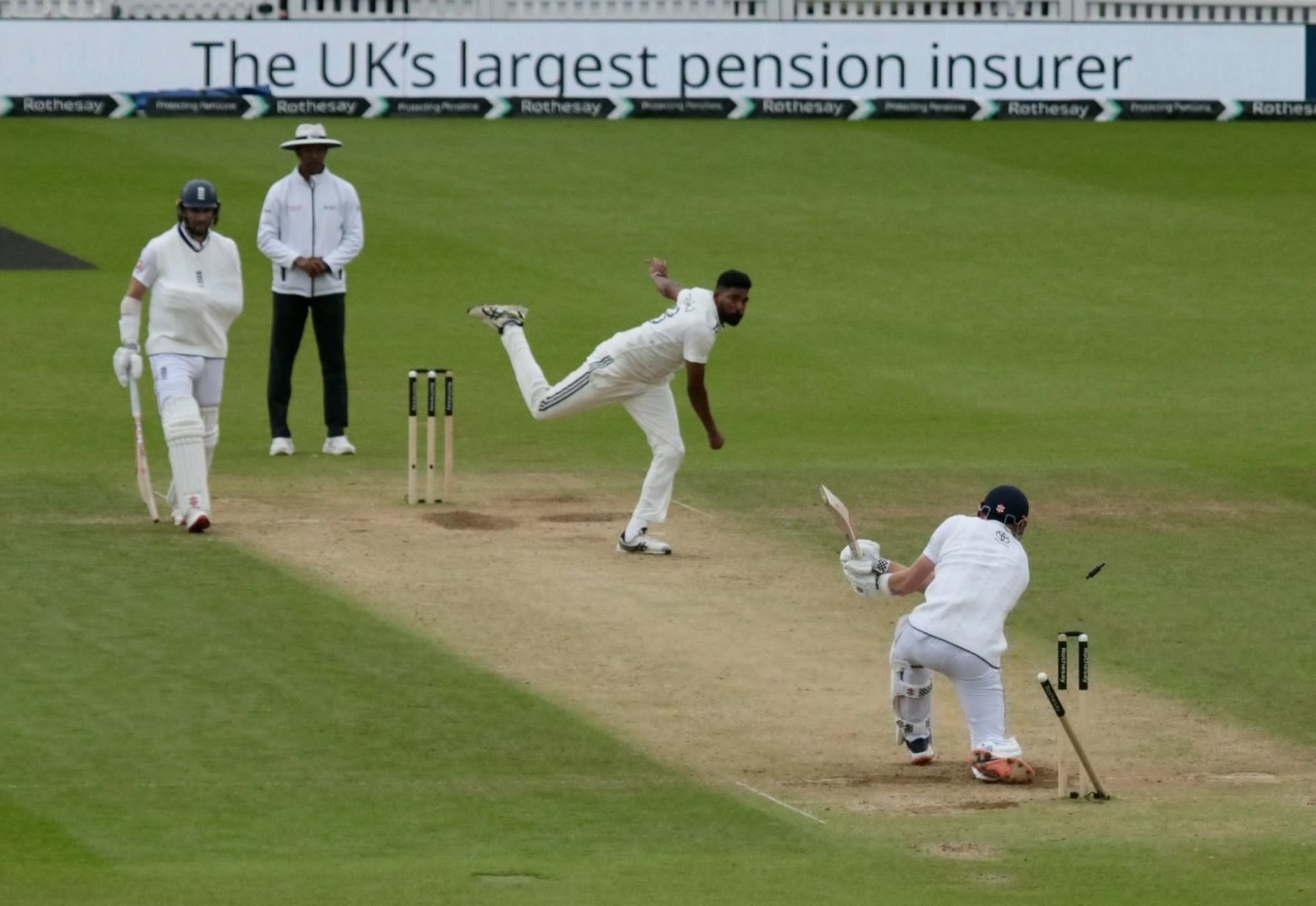
Mohammad Siraj bowled Gas Atkinson on the first ball of the over and won India. Atkinson was dismissed for 17 runs.
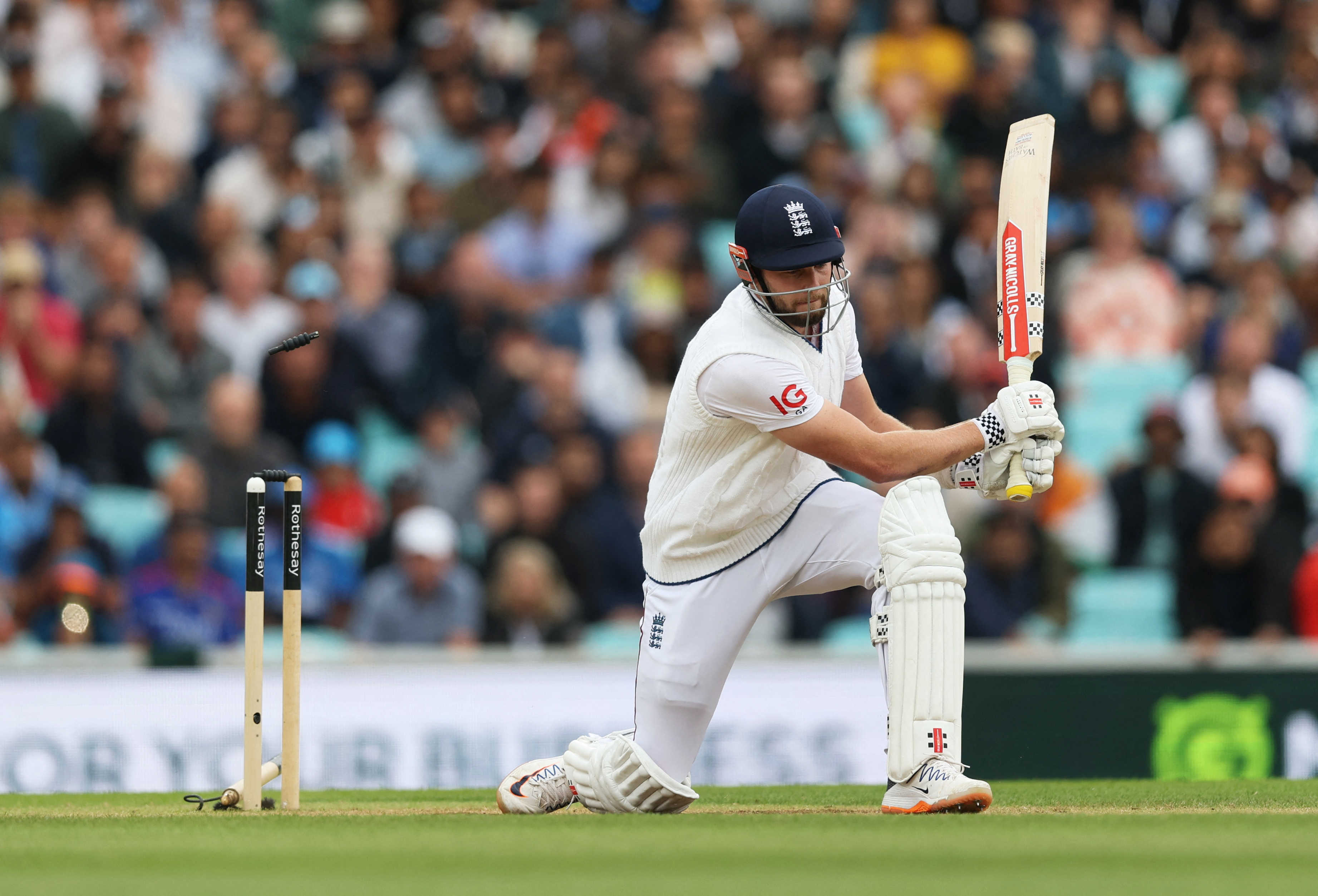
Gus Atkinson tried to win England, but was dismissed as the team’s 10th wicket.
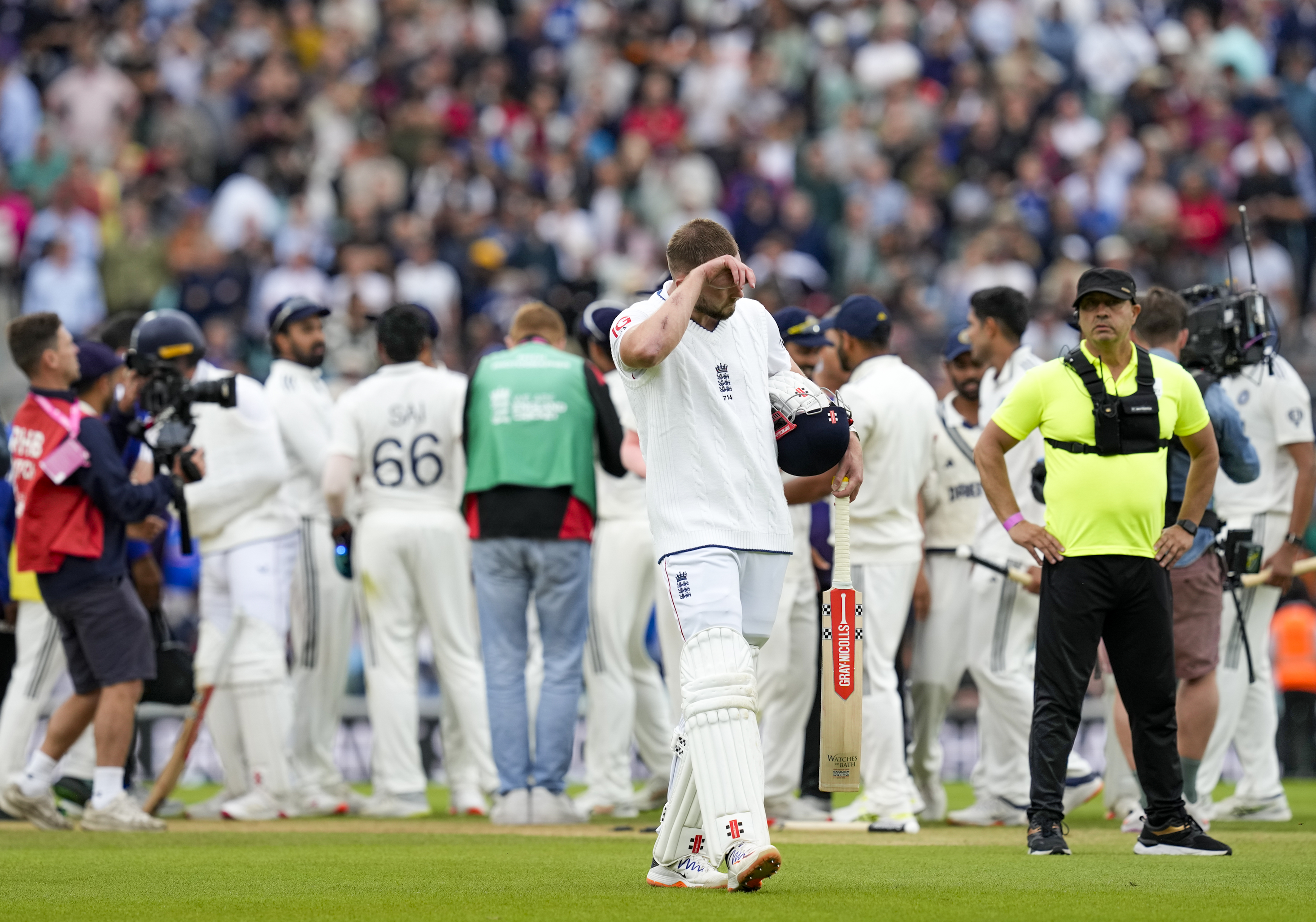
After being bold, Gas Atkinson of England is disappointed and returning to the pavilion.
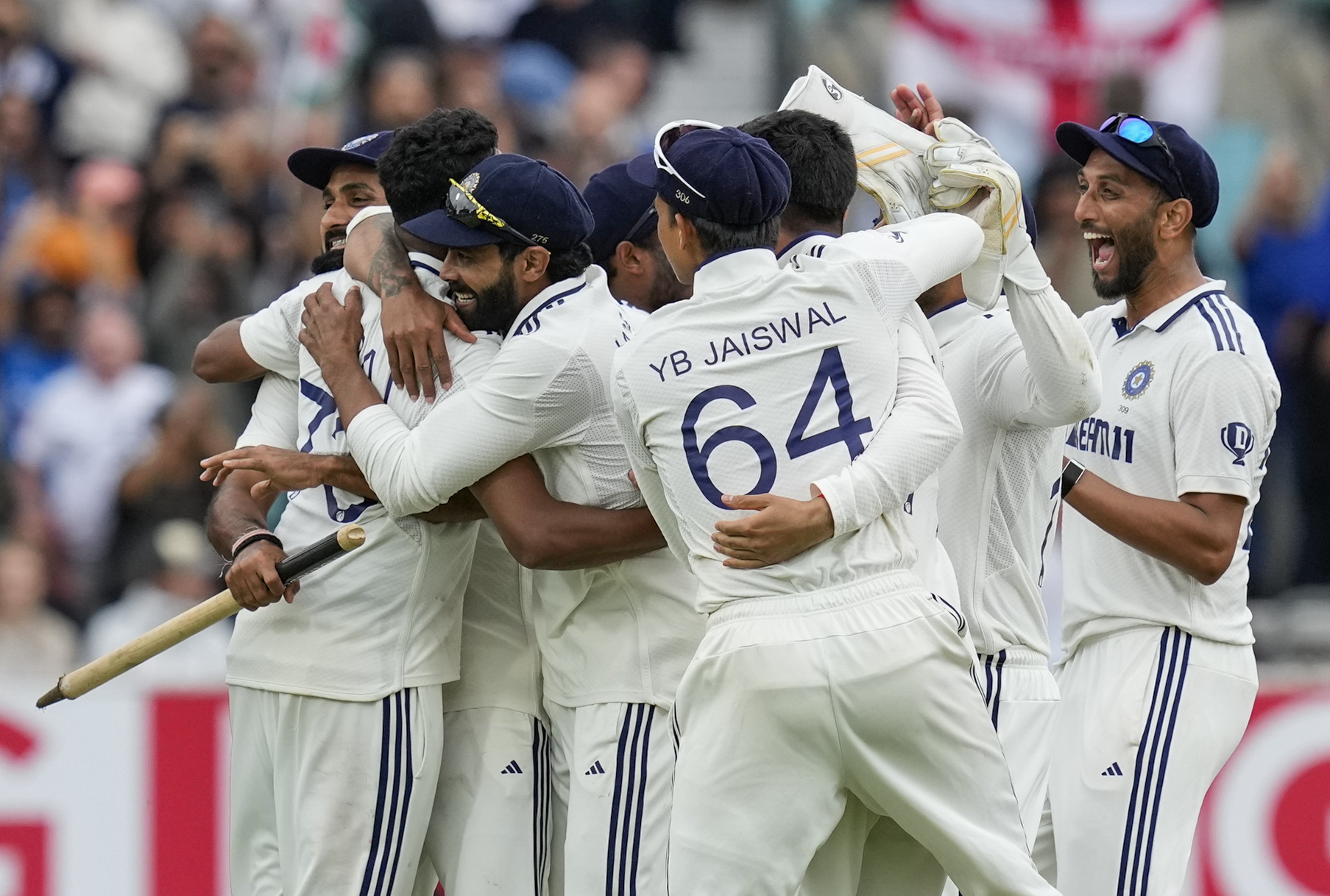
Indian players celebrating victory.
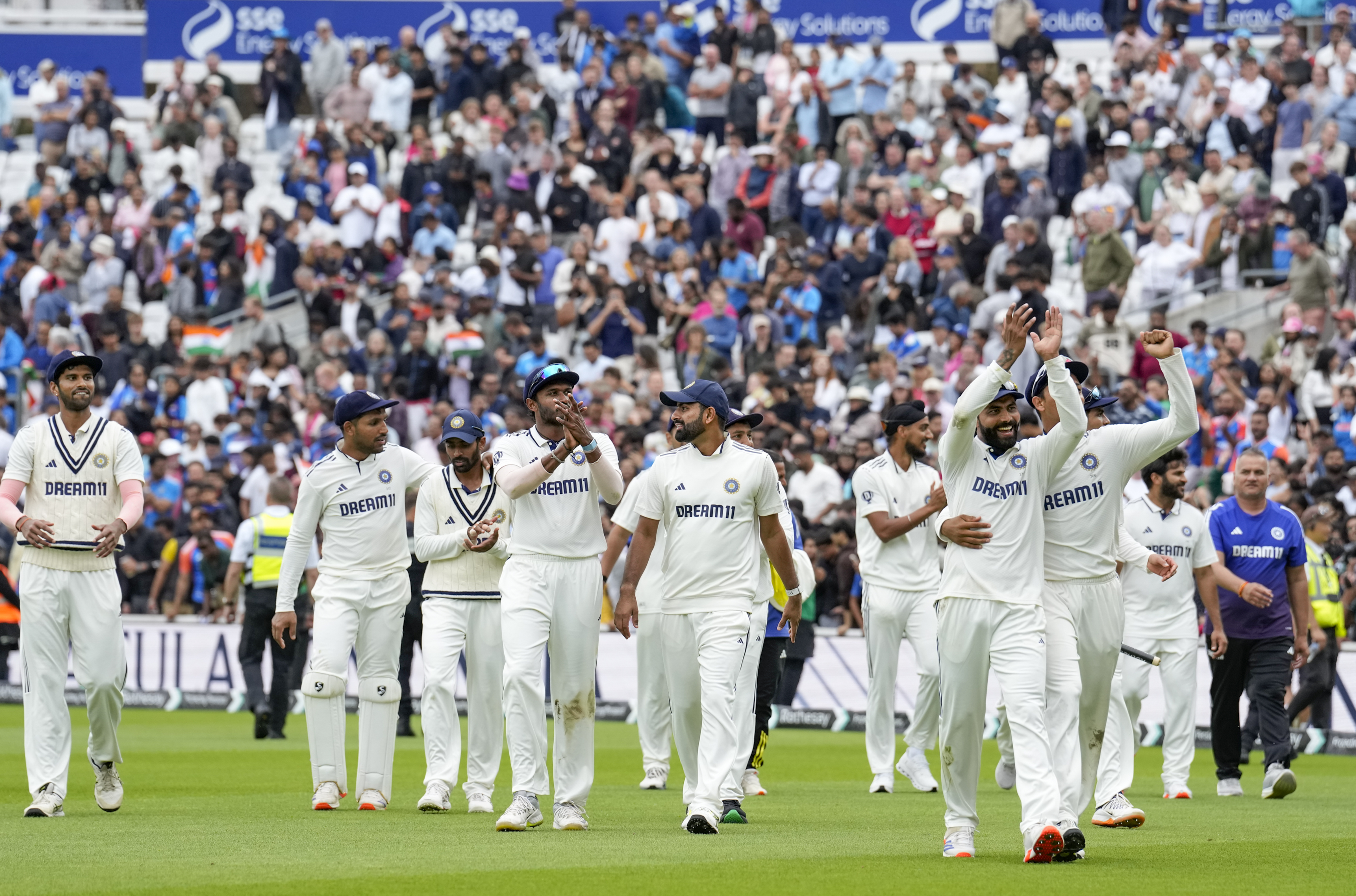
Indian players greeted London audience.

Mohammad Siraj with the Player of the Match Medal.
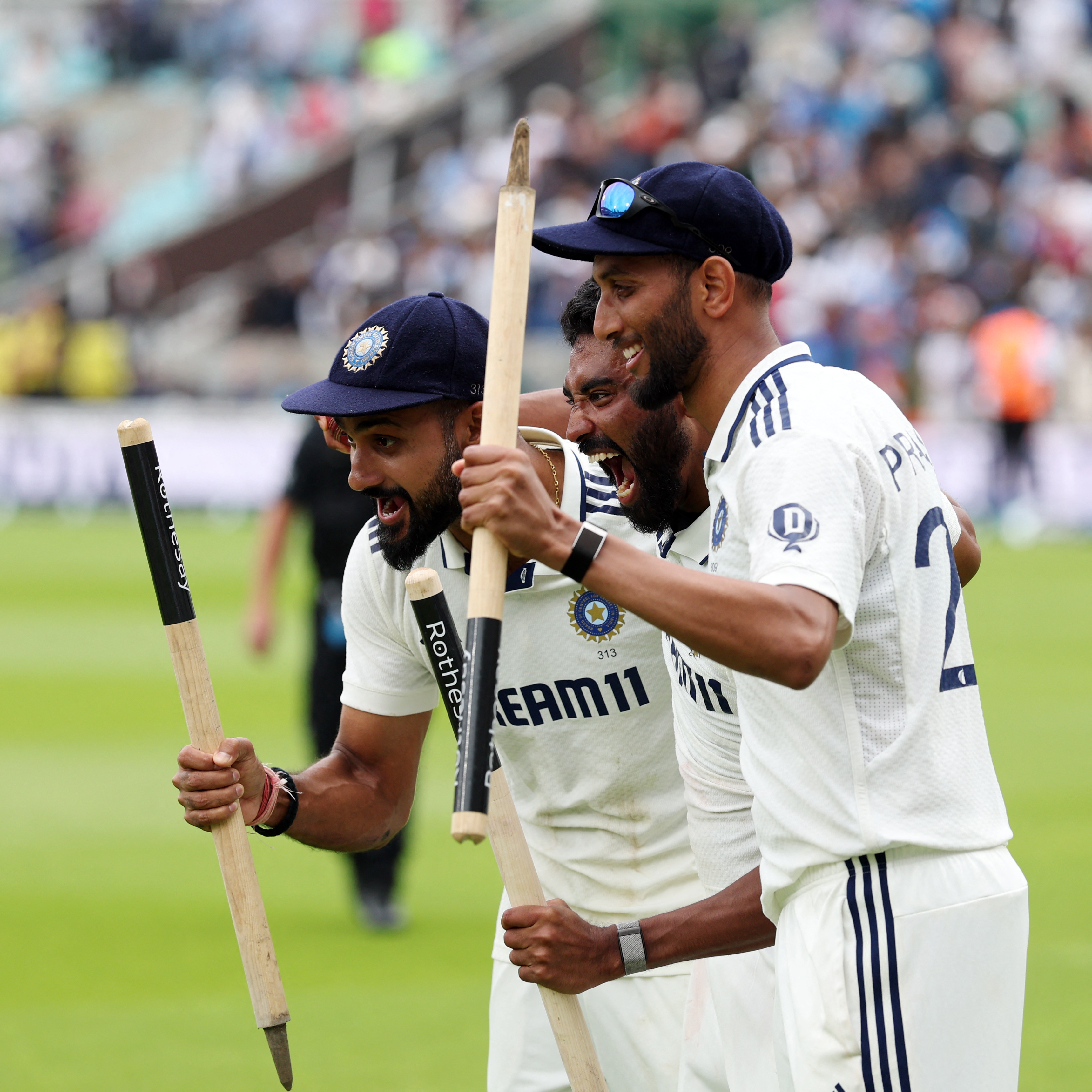
All three fast bowlers who won the Oval Test to India. Akashdeep, Mohammad Siraj and famous Krishna from left.
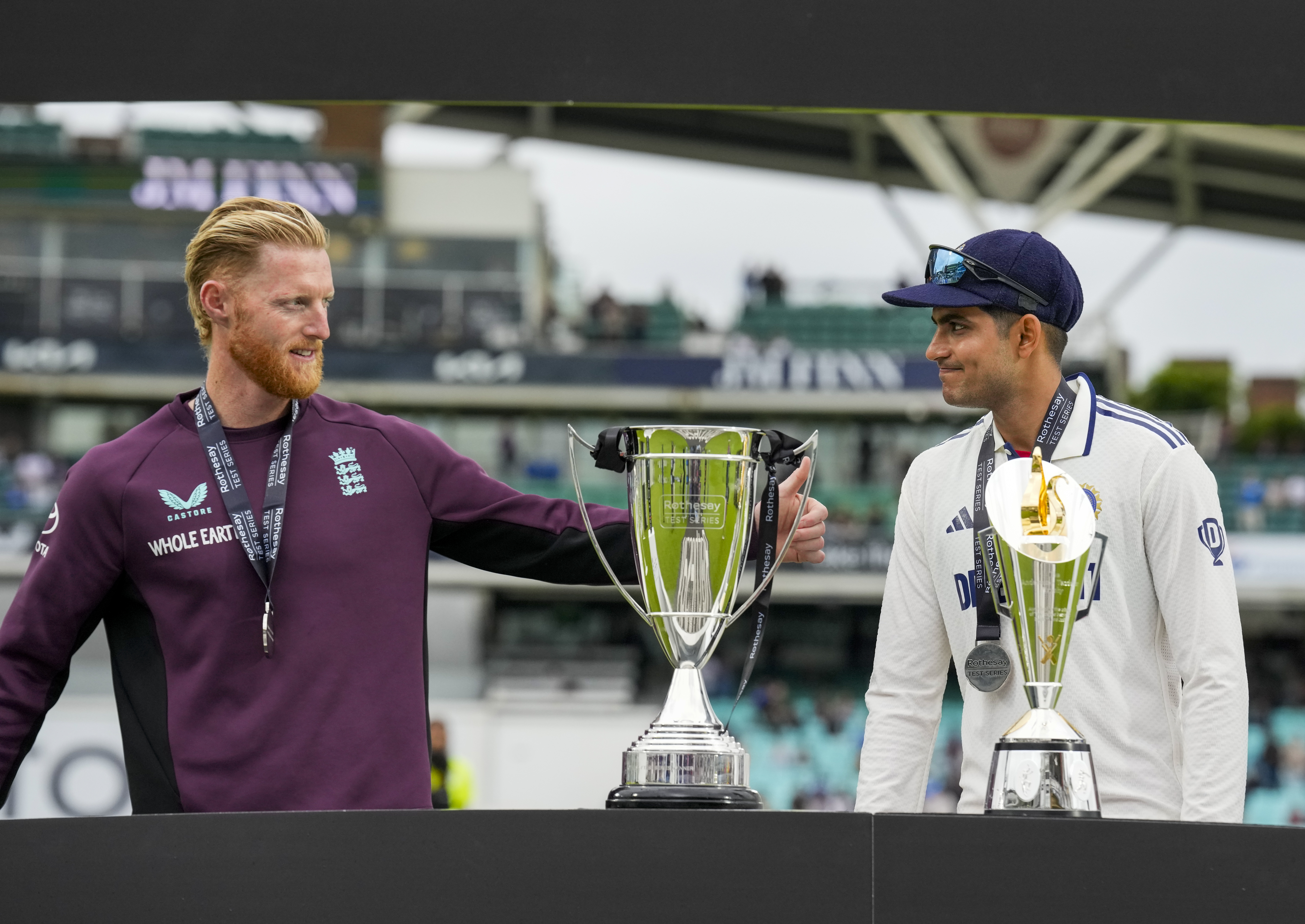
England captain Ben Stokes and India captain Shubman Gill with Anderson-Tendulkar Trophy.
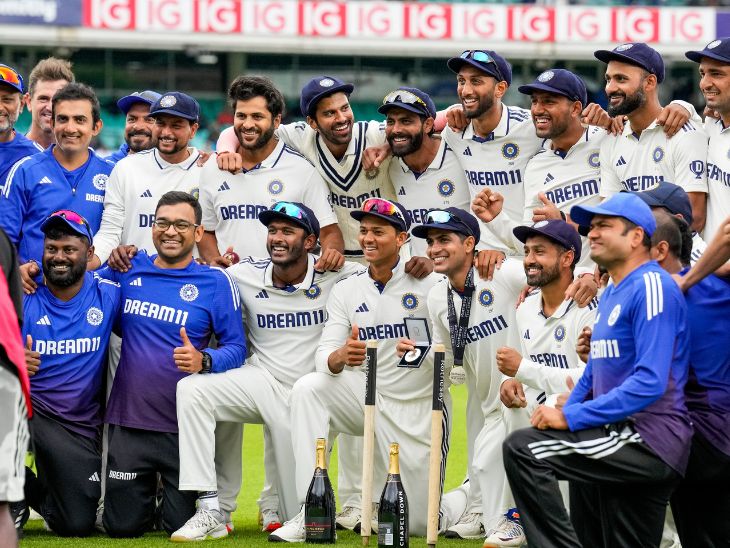
Players of Team India during the photoshoot after the series draw.

Mohammad Siraj took 5 wickets in the second innings. He became the Player of the Match. He took 4 wickets in the first innings.

